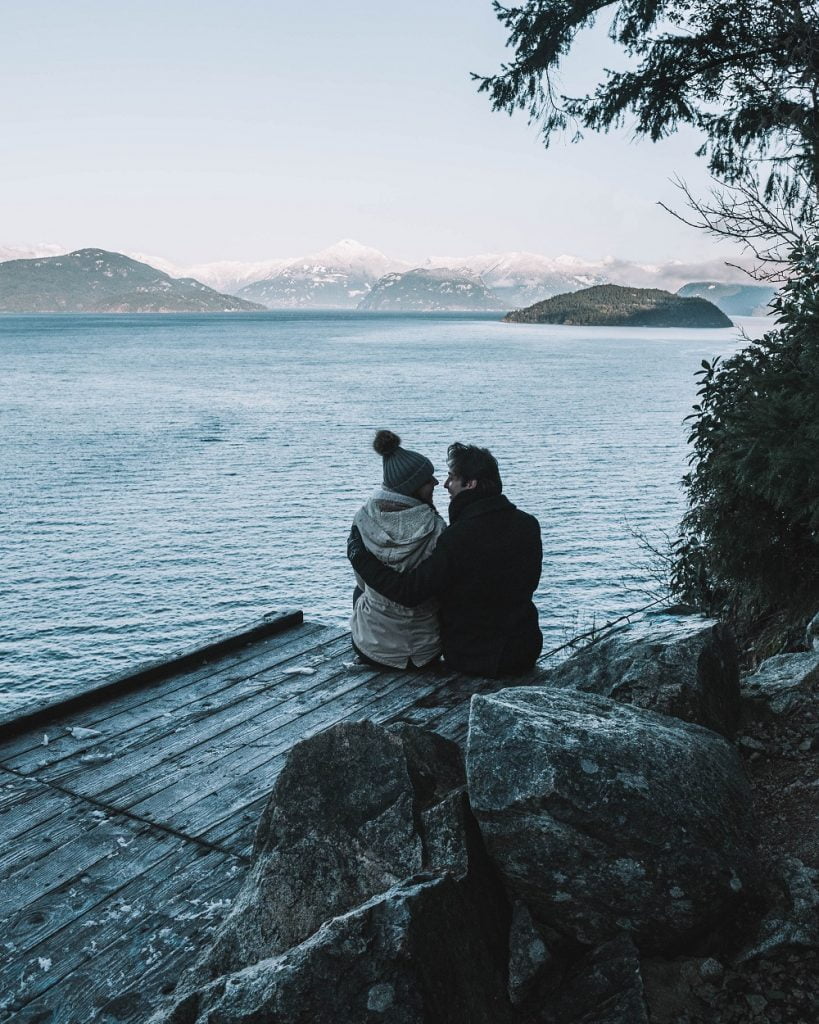By Marie and Eric of BR by Mary
Sometimes your smallest actions have the biggest impact. This is very much true when trying to find ways to travel more sustainably.
Travelling is our passion and we love discovering new places, immersing ourselves in new cultures and enjoying the beauty of dreamy beaches and canyon-like landscapes. After all, we chose to be expats in Ireland!
That said, we also know that with travelling comes a lot of issues, including pollution. In this post, we are sharing 12 ways on how to be more eco-friendly when travelling. The best thing about those is that they are easy to implement and a lot of them also contribute to keeping your travels on a budget!

Our 12 Eco-Friendly Ways to Travel
1. Unplug your home
We believe that eco-friendly travelling starts at home. Before stepping out and heading to the airport or on your road trip, make sure that all of your appliances and electronics are unplugged. Plugged appliances and electronics continue to consumer energy even if not in use.
Although it makes sense to keep your microwave plugged in when you are home, it is not necessary when you are gone. Unplugging appliances can look different depending on where you live. In Ireland, where we currently live as expats, we have noticed that plugs come with on/off switches. This is something neither of us had seen in Canada or France, where we are from.
We don’t need to actually unplug our electronics, turning the switches off is enough. We still unplug them to limit any risk of hazards when we are gone though.
2. Use public transportation
Using public transportation is a great way to reduce your CO2 emissions. Taking public transportation is really easy in Europe as the systems are very developed here. When we traveled to Paros in Greece, we used the bus system to go around the island and visit the best Paros beaches.In addition to being better for the environment than renting a car, it also saved us a lot of money and allowed us to relax and really take in the views!
3. Take bike or walking tours
Bike and walking tours are obviously better for the environment than bus or car tours. Almost every destination offers bike or walking tours and sometimes they can even be free! Walking tours can also make you discover parts of a city you would have never been to if you had taken a bus tour or a taxi!
4. Use a reusable water bottle
Our reusable water bottle is probably one of our best investments for our travels. We have a metal water bottle that also retains the heat if we want to bring a hot drink with us. We bring it everywhere with us. Our main use for it is mainly to avoid buying plastic bottles. Plastic these days is everywhere and it is a high contributor to pollution. So we avoid it as much as possible and bringing a reusable water bottle is one cheap and easy way to do that!

5. Pack light
So we might not be the best at this, but we definitely try our best to pack light when travelling. Whether it’s an airplane, a car or a bus, your transportation vehicle fuel consumption is linked to its weight. The heavier it is, the more fuel it consumes.
In addition to being better for the environment, in a lot of cases, packing light also allows you to save money as you won’t need to book as much luggage. We usually try to pack only carry ons or we share a hold luggage.
6. Bring your trash back from the beach
Have you ever been to a dreamy beach in the Mediterranean and found out at the beach that it is covered in plastic? Well, we have, and honestly it triggers an emotion really close to rage when we see that. Between cigarette butts and snack plastics wraps, the amount of waste that people don’t bring back with them is unbelievable.
If you plan on having a picnic at the beach, come prepared. Here are a few things we do to ensure we leave no trace:
- We bring a garbage bag so we can gather our waste in one place. If we forget, we will usually have a chips bag or a sandwich packaging that we will use as the garbage bag;
- We always watch for the wind as it could blow our garbage away;
- We bring our garbage with us instead of throwing it in the garbage cans at the beach. If you are in a hidden or hard to reach place in nature, chances are that garbage cans don’t get regularly emptied. This could result in overfilled garbage cans or waste being blown away by the wind. So bringing your waste with you and throwing it away where refuse is collected regularly is a better option.
7. Eat local food
Local food is, well, local. This means it does not travel across the world for days through trucks, ships and planes. And that’s much better for the environment!
Depending on your destination, it is possible that the local food is grown with techniques that are respectful of the environment. As opposed to big corporations, locals often want to preserve their environment, their culture and the nature around them. For example, it could mean that no GMOs are used or that the earth is given time to breathe between harvest times.
Eating local food also supports the locals. By spending money that goes directly to the locals, you are supporting communities and families that need it, instead of supporting big corporations who harm the planet with big productions. Eating local food is a way to have a positive impact on the environment and the people who take care of it.
When travelling to Milos Island, we loved eating at the local restaurants. We had delicious homemade traditional Greek food and loved the authentic and cozy ambiance!
8. Only ask for sheets to be changed if needed
When staying at a hotel, it is very common for sheets and towels to be changed every day or every other day. Every time sheets and towels are changed, energy is consumed for the washer and the dryer. However, this always seems like a waste of energy to us. When we are at home, we don’t change our sheets or towels every day. So we have adopted the same behaviour when staying at a hotel. On average, we usually ask for our sheets and towels to be changed once a week. That’s about 3 to 6 wash saved!

9. Bring a fast dry towel
Long gone are the days when we would travel with a thick beach towel or use the resort towels. Instead, we have a large fast dry towel that we bring everywhere with us. It’s the perfect beach towel that also doubles as a picnic blanket! It dries fast and therefore doesn’t need to be put in the dryer.
10. Stay at an accommodation that is self-sufficient
Eco-friendly accommodations have started to be more common and also more affordable. Eco-friendly accommodations can have different size and shapes. It can be a hotel with solar panel producing its own electricity. It can be a B&B that farms their own breakfast. It can be a tree house with solar energy and dry toilets. There is lots of choice out there!
11. Pick up garbage
Wherever you are travelling to, one action you can do to contribute to a less polluted planet is picking up plastic when you see some. When we are at the beach, we will usually spend some time just looking around and picking up plastic wraps, cigarette butts and pieces of plastic. Make sure to throw this away in a garbage can that is actually emptied regularly.
12. Research experiences before booking
Who hasn’t dreamed of spending time with wild elephants in Thailand? It’s definitely something we have on our bucket list! Although this is an experience you can have at a sanctuary, not all sanctuaries take good care of their animals.
It’s important to research the values of the centre you are visiting. And sometimes they can surprise you! For example, we often hear that zoos or aquariums are bad. However, we absolutely loved Vancouver’s aquarium. Vancouver’s aquarium has a Marine Mammal Rescue team which rescues over 150 marine animals each year and rehabilitate them to ensure they can be ready for release back in the wild. They do a fantastic job!

About the authors
Marie (French) and Eric (Canadian) are an expat couple based in Ireland and focus on budget travelling to their dream destinations. They share lots of budget travel tips for a mix of cheap, mid-range and luxurious travels to help you travel as you want without breaking the bank. You can follow their adventures on Instagram.